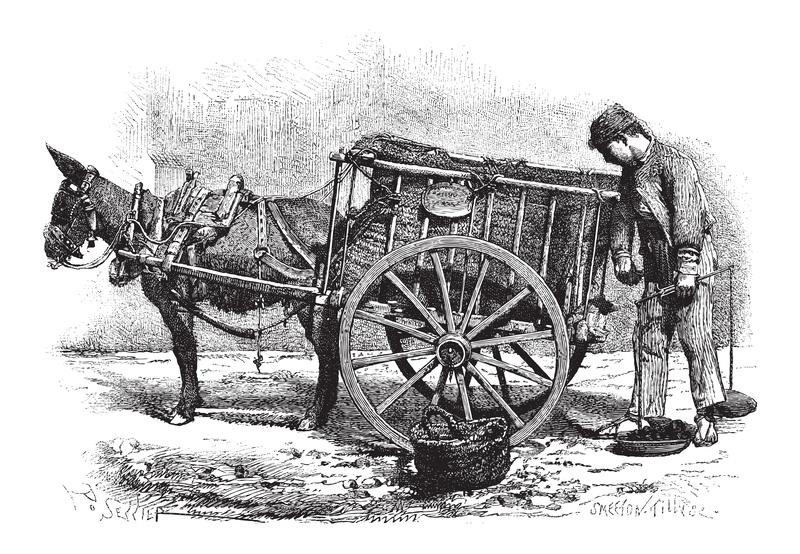Elevate Your Home's Recycling Game Instantly: Mastering Sustainable Living at Home
Are you ready to upgrade your home's recycling habits and make an instant impact on the planet? Recycling isn't just about tossing cans and bottles into a bin; it's about transforming your household waste into resources and making sustainable choices every single day. In today's world, our actions matter more than ever, and elevating your recycling game at home can set a new standard for eco-friendly living. In this comprehensive article, we guide you through practical, actionable steps to help you become a recycling champion--from smart sorting to creative upcycling and everything in between.
Why Should You Elevate Your Home's Recycling Game?
Recycling effectively at home brings a host of benefits that go beyond environmental preservation. When you focus on enhancing your recycling habits, you also:
- Reduce landfill waste: Less garbage in landfills means lower greenhouse gas emissions and a cleaner local environment.
- Conserve resources: Recycling helps save natural resources, energy, and water.
- Support your community: Proper recycling can create jobs in processing and manufacturing, supporting a circular economy.
- Save money: Smart recycling often reduces waste disposal fees and encourages mindful purchasing.
- Lead by example: Families that make responsible choices inspire others to do the same.

Step 1: Set Up an Optimized Sorting Station
The first step to improving your home's recycling is setting up a well-organized and clearly labeled recycling station. Make it easy, attractive, and accessible for everyone in your household.
How to Organize Your Recycling Setup
- Choose the right location: Place your recycling bins in kitchens, garages, or high-traffic areas. Accessibility ensures that everyone participates.
- Label all bins: Use color-coded or clearly labeled bins for paper, plastics, metals, and glass. This helps avoid confusion and contamination.
- Keep a reference guide handy: Print and display a recycling guide for your area to remind everyone of acceptable materials.
- Include a compost bin: For food scraps and organic waste, a compost bin can significantly reduce your landfill contribution.
- Use stackable or space-saving containers: Optimize small spaces with stackable bins to maximize efficiency.
Step 2: Master the Local Rules--Know What to Recycle and How
Every community has unique recycling rules. To improve your home's recycling game, understanding local guidelines is crucial.
- Check with your local waste management: Visit their website or contact customer service for up-to-date recycling instructions.
- Download recycling apps: Some municipalities offer apps or tools for quick reference.
- Stay updated: Recycling regulations can change. Subscribe to newsletters or social media updates from your local provider.
- Post guidelines in your recycling area: Having a cheat-sheet helps household members follow the rules.
- Learn about hazardous waste disposal: Items like batteries, electronics, and chemicals often require special handling.
Step 3: Eliminate Contamination--Recycle Right, Every Time
Contamination is one of the biggest challenges in household recycling. Even small mistakes can send entire batches of recyclables to the landfill.
- Rinse containers before recycling: Leftover food and liquids contaminate clean recyclables.
- Don't bag your recyclables: Always place items loose in bins unless your local guidelines specify otherwise.
- No plastic bags or wrap: Unless specifically accepted, these items should not be placed in curbside recycling.
- Remove caps and lids: Many municipalities ask you to remove them before recycling bottles and jars.
- Avoid "wish-cycling": When in doubt, check first. Misplaced items do more harm than good.
Step 4: Go Beyond Basics--Recycle More Than Just Cans and Bottles
To elevate your home's recycling efforts instantly, expand your scope by targeting less obvious recyclables:
Commonly Overlooked Recyclables
- Electronics: Many retailers and recycling centers accept old phones, laptops, and appliances.
- Batteries: Drop them off at designated collection points.
- Textiles and clothing: Donate, upcycle, or locate textile recycling bins in your area.
- Light bulbs: Many hardware stores collect old bulbs for proper disposal.
- Corks, ink cartridges, and more: Specialized programs exist for many niche items.
Step 5: Get Creative--Upcycle and Repurpose at Home
Recycling isn't the only green habit you can cultivate. Upcycling and repurposing common household items not only keeps materials out of the landfill but also sparks creativity.
Simple Upcycling Ideas
- Glass jars: Use them for storage, planters, or candle holders.
- Old t-shirts: Turn them into cleaning rags or tote bags.
- Cardboard boxes: Transform into children's crafts, organizers, or pet playhouses.
- Plastic containers: Repurpose into drawer dividers or gardening pots.
- Wine corks: Create trivets, keychains, or bulletin boards.
Step 6: Make Recycling a Family Affair
A truly successful household recycling system involves everyone. Get your family or roommates involved to elevate your home's recycling game instantly.
- Educate kids early: Teach them what can and cannot go in each bin. Use fun games and visuals.
- Assign recycling roles: Rotate who takes out specific bins or sorts materials weekly.
- Celebrate milestones: Track how many bags or pounds you've recycled and reward your efforts with a treat or eco-friendly purchase.
- Discuss improvements: Hold regular family meetings to talk about challenges and successes.
Step 7: Choose Products with Recycling in Mind
One of the smartest ways to raise your recycling standards is by making more mindful shopping choices. Consider recyclability before you buy.
- Read packaging labels: Select products with clear recycling symbols and minimal mixed materials.
- Opt for reusable over disposable: Use glass jars, metal straws, and cloth napkins to cut down single-use items.
- Support brands committed to sustainability: Look for those using recycled materials and eco-friendly packaging.
- Avoid unnecessary packaging: Buy in bulk or bring your own containers when shopping.
Step 8: Compost--Turn Waste into Garden Gold
While not traditional recycling, composting organic material is a powerful way to close the loop at home and convert kitchen scraps into valuable fertilizer.
- Compost food scraps: Fruits, vegetables, coffee grounds, and eggshells are compost staples.
- Include yard waste: Grass clippings, leaves, and small branches aid decomposition.
- Avoid meat and dairy: Unless you have a special composting system, skip these items to prevent odors and pests.
- Start a worm bin (vermicompost): Ideal for small spaces and indoor composting.
- Use finished compost: Enrich your garden or houseplants naturally.
Step 9: Recycle On-the-Go and in Every Room
Expand your recycling efforts beyond the kitchen to truly improve your home's recycling:
- Bathroom: Place a small bin for recyclable shampoo bottles and toilet paper cores.
- Offices and bedrooms: Collect used printer paper, boxes, and electronics.
- Garage and storage areas: Safely dispose of hazardous items like old paint, oil, and automotive parts.
- On-the-go: Carry a collapsible bag to store recyclables until you can properly dispose of them.
Step 10: Spread the Word and Inspire Your Community
One household can make a difference, but many together can spark a movement. As you elevate your home's recycling, invite neighbors, friends, and your community to join in:
- Share tips on social media: Post about your journey and favorite hacks.
- Organize local cleanups or recycling drives: Show leadership and inspire collective action.
- Support local eco-initiatives: Get involved with sustainability groups or workshops.

Common Recycling Myths--Busted!
- Myth #1: Everything with a recycling symbol is recyclable.
Truth: Check local guidelines. Many items with arrows--such as certain plastics--may not be recyclable in your area. - Myth #2: Rinsing your recycling wastes water.
Truth: Quickly rinsing items prevents contamination and helps more items get recycled, using minimal water. - Myth #3: Small items like bottle caps are too tiny to recycle.
Truth: Caps and small parts are often accepted if attached to their bottles. Verify with your local facility. - Myth #4: Recycling isn't worth the effort.
Truth: Every item kept out of landfills matters, and as demand for recycled materials grows, the impact increases!
Conclusion: Elevate Your Home's Recycling Game Today!
Improving your home's recycling system offers immediate benefits for your family, your wallet, and the planet. By streamlining your sorting process, following local guidelines, eliminating contamination, and thinking creatively about reuse, you can make a significant difference. From enthusiastic beginners to seasoned eco-warriors, any household can upgrade their recycling habits instantly--all it takes is a few intentional changes. Start small, involve everyone, celebrate your progress, and watch your positive impact grow.
Ready to get started? Elevate your home's recycling game today and set a shining example for neighbors, friends, and generations to come.
Key Takeaways to Instantly Elevate Your Home's Recycling Game:
- Set up a dedicated, labeled recycling station.
- Follow local recycling rules to prevent contamination.
- Expand what you recycle--look beyond basics.
- Incorporate creative upcycling and composting habits.
- Get the whole family involved for long-term success.
- Advocate and inspire others in your community.
For more tips and resources on raising your home's recycling standards and embracing a cleaner, greener lifestyle, keep exploring, learning, and making a difference every day!